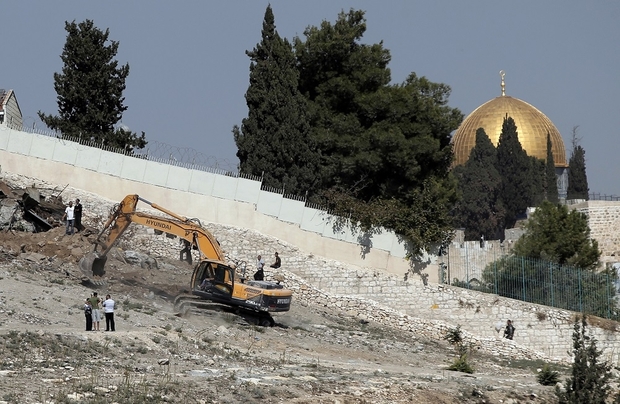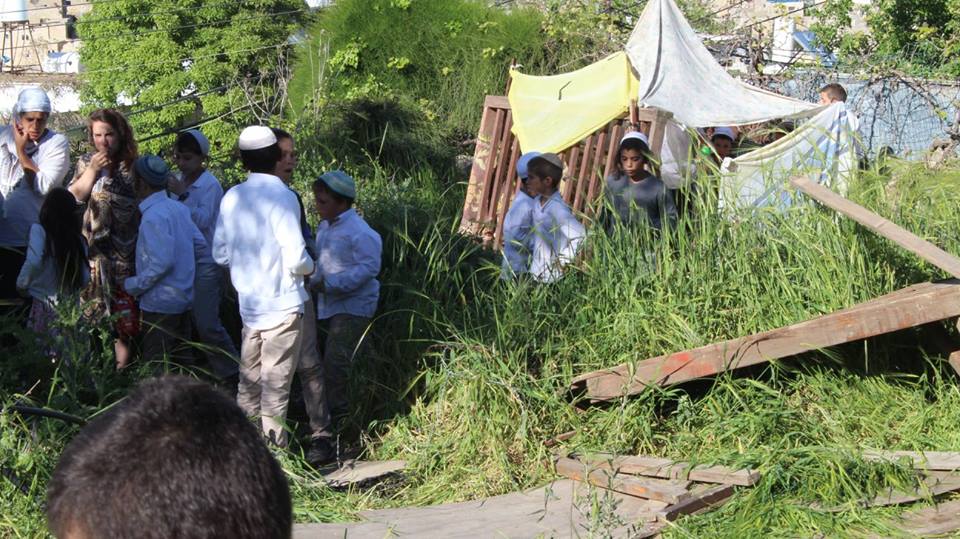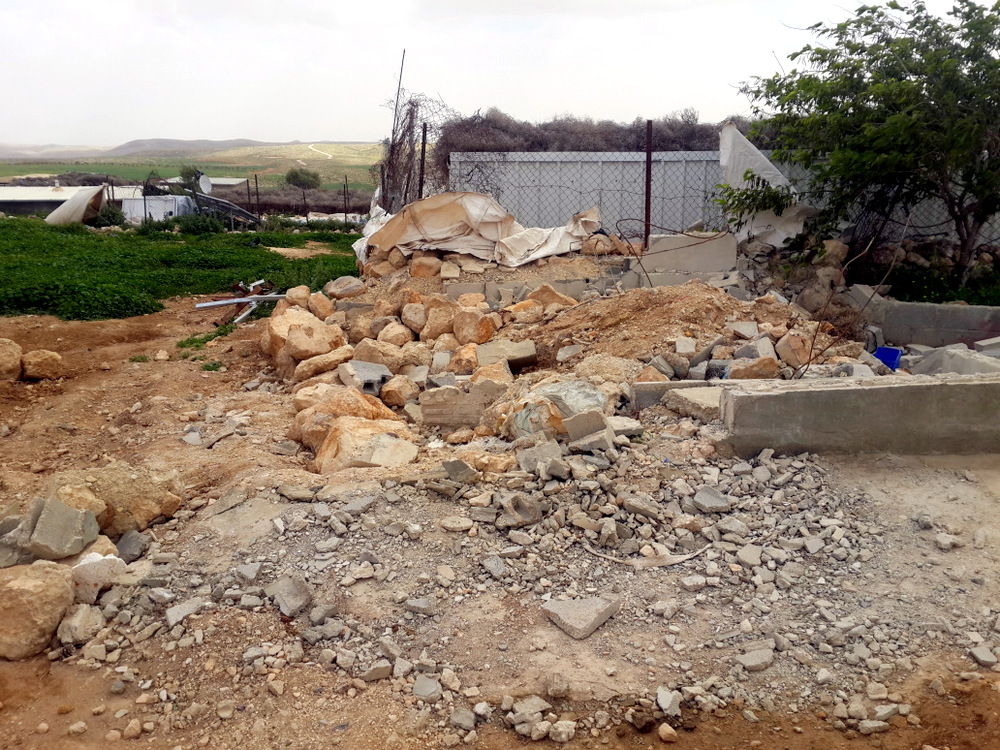Category: Press Releases
-
Press release: Last day of demolition order leaves Palestinian family in Wadi al-Joz in fear of losing their home
10th April 2016 | International Solidarity Movement, al-Khalil Team | Jerusalem, occupied Palestine The 10th of April is the last day of the demolition order on the home of the Totanji family. The family lives in the Sawaneh district in Wadi al-Joz, a village in East Jerusalem near the Old City, which Israel has declared…
-
Settlers expropriate Palestinian garden as police stand by
4th April 2016 | International Solidarity Movement, al-Khalil team | Tel Rumeida, al Khalil, occupied Palestine On Saturday 3rd of April 2016 settlers entered land belonging to Muhammad Abu Haikal in the Tel Rumeida area of Hebron on the occupied West Bank in Palestine. The settler children built a tent and then brought other settlers…
-
Demolitions in Khirbet Jenba, South Hebron Hills
23rd March 2016 | B’Tselem | South Hebron Hills, occupied Palestine This morning, the Israeli Civil Administration demolished a home, shed and an animal enclosure in Khirbet Jenbah, in the Masafer Yatta area of the southern Hebron Hills. The authorities also confiscated solar panels donated by an international aid agency. Photos from Today’s demolition. Credit:…



